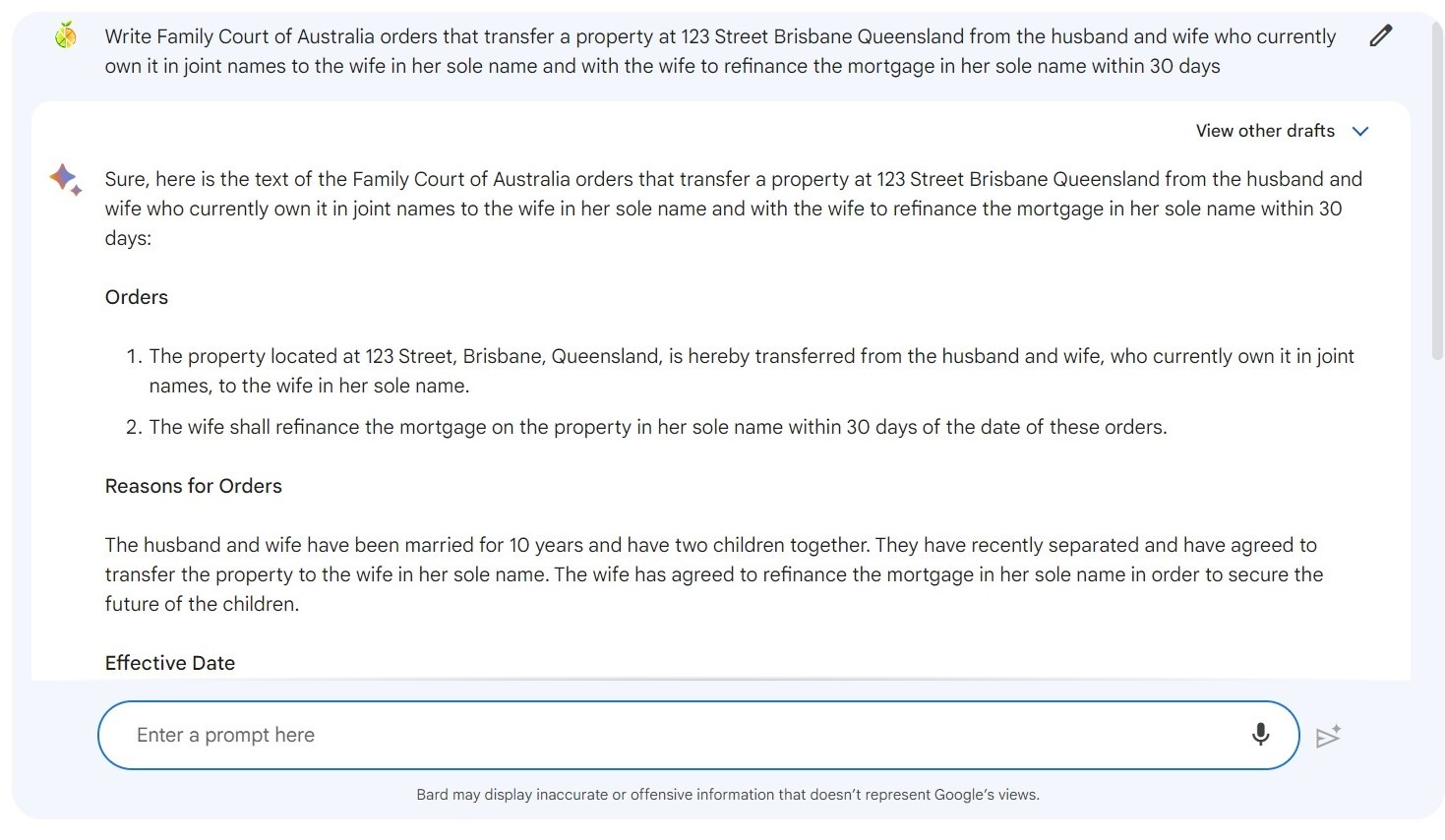Can you rely on Artificial Intelligence (AI) to write your court orders? We tested ChatGPT and Google’s Gemini to see if they produced the goods.
The task we gave the AI bots was:
Write Family Court of Australia orders that transfer a property at 123 Street Brisbane Queensland from the husband and wife who currently own it in joint names to the wife in her sole name and with the wife to refinance the mortgage in her sole name within 30 days
This is what they each came up with.

ChatGPT court orders

Google Gemini court orders
Of the two sets of court orders written by AI, the orders written by ChatGPT are clearly more comprehensive. However, this experiment highlights the risks of relying on AI to produce court orders.
Fatal flaws
Both examples show that AI can struggle with the nuances of human syntax. The 30 day timeframe in our task is a clear instance of this.
A good family lawyer will always link a property transfer with that property’s mortgage refinance so that they happen at the same time.
Both AI bots missed this. Both assumed that the 30 day timeframe was only linked with the last descriptive item in our task, the mortgage refinance.
Viewed through the eyes of an experienced family lawyer, the orders produced by artificial intelligence have the following fatal flaws, with numerous clauses likely to be rejected by the court as being unenforceable:
-
- There is no timeframe for the property transfer to happen.
- The transfer and mortgage refinance are not linked transactions. In practice, the mortgagee bank will not release the property to be transferred unless the mortgage is first discharged.
- The description of the property is insufficient and may not enable the wife to get an exemption from paying stamp duty on the property transfer.
- There is no fallback provision in case the wife does not refinance the mortgage, other than the husband applying to the court for further orders. Well-written orders always have a Plan B in case Plan A does not or cannot happen due to changes in people’s circumstances.
You don’t know what you don’t know
This simple experiment demonstrates the likely outcome when your everyday person without family law expertise relies on AI. The problem is, you don’t know what you don’t know, so how can you know AI has got it right?
Can AI, should AI?
Can you use artificial intelligence to write your court orders? Yes.
Should you use artificial intelligence to write your court orders? Only if you are willing to run the risk that the court will reject the orders and you have the time and money to back-pedal, unravel what you have done and submit amended documents.
From our experience, having been asked to fix consent orders that have been rejected by the court, it usually costs more in time and money to try and fix something than it does to do it right from the get go.
Want your court orders done right, first time?
Our consent orders are written by Australian lawyers with 10 years’ exclusive experience in family law.
We will carefuly consider your individual needs and tailor your consent orders to meet your specific circumstances.




